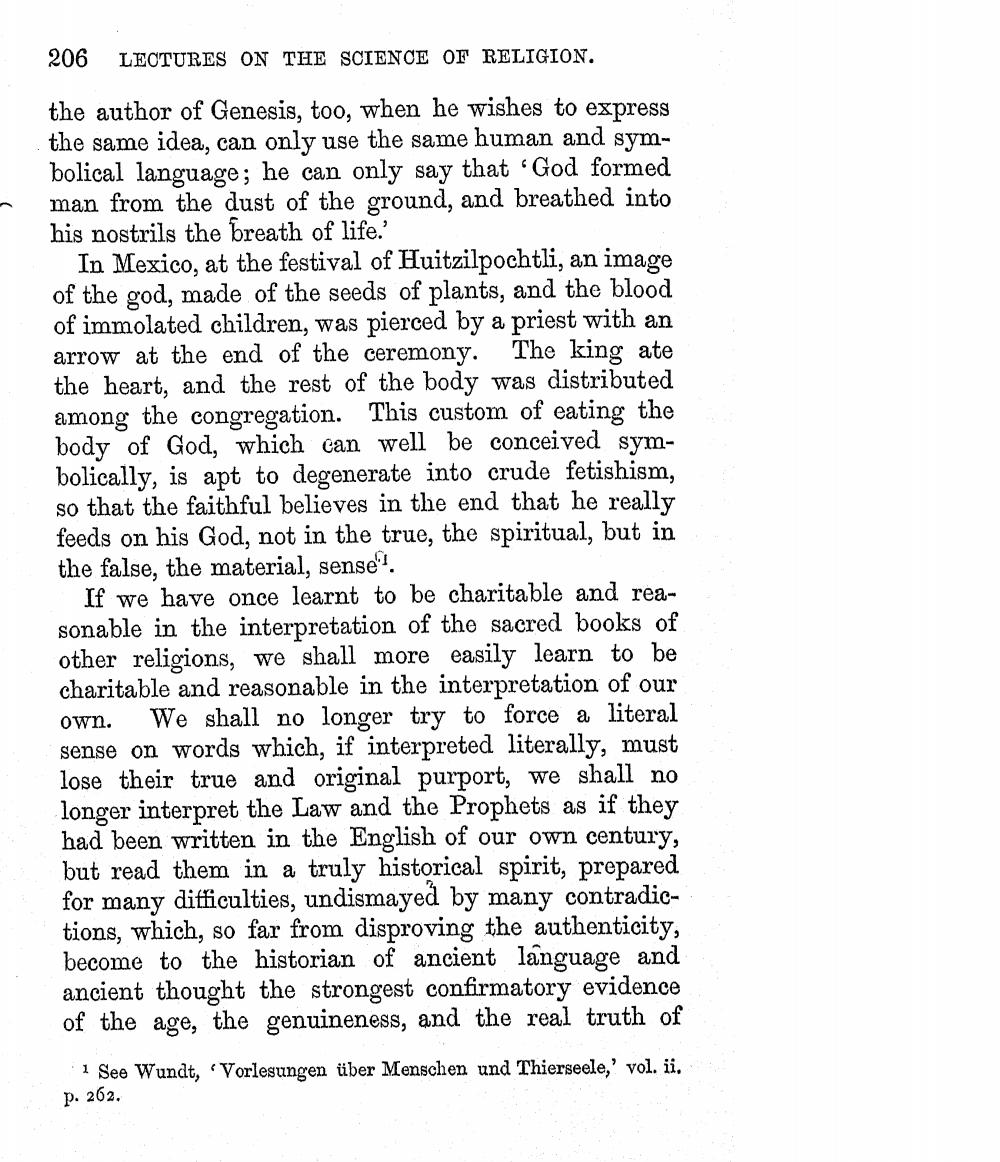________________
206
LECTURES ON THE SCIENCE OF RELIGION.
the author of Genesis, too, when he wishes to express the same idea, can only use the same human and symbolical language; he can only say that God formed man from the dust of the ground, and breathed into his nostrils the breath of life.
In Mexico, at the festival of Huitzilpochtli, an image of the god, made of the seeds of plants, and the blood of immolated children, was pierced by a priest with an arrow at the end of the ceremony. The king ate the heart, and the rest of the body was distributed among the congregation. This custom of eating the body of God, which can well be conceived symbolically, is apt to degenerate into crude fetishism, so that the faithful believes in the end that he really feeds on his God, not in the true, the spiritual, but in the false, the material, sense''.
If we have once learnt to be charitable and reasonable in the interpretation of the sacred books of other religions, we shall more easily learn to be charitable and reasonable in the interpretation of our own. We shall no longer try to force a literal sense on words which, if interpreted literally, must lose their true and original purport, we shall no longer interpret the Law and the Prophets as if they had been written in the English of our own century, but read them in a truly historical spirit, prepared for many difficulties, undismayed by many contradictions, which, so far from disproving the authenticity, become to the historian of ancient language and ancient thought the strongest confirmatory evidence of the age, the genuineness, and the real truth of
1 See Wundt, Vorlesungen über Menschen und Thierseele,' vol. ii. p. 262.




